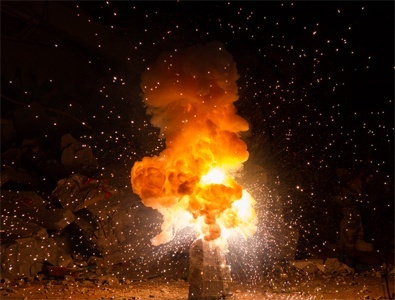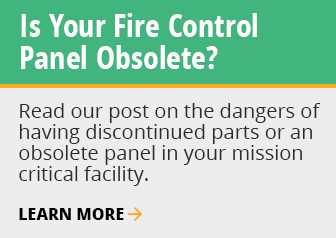Even to the trained eye, it can be difficult to immediately pinpoint the exact cause of a false fire alarm and know the cure to fixing it. Although every situation is different, we can typically narrow down the common causes to a few scenarios that often reoccur. In the video below, Fire Protection Expert Lee Kaiser explains a some of the most common causes of false fire alarms, as well as the top five causes of unscheduled emergency service calls for ORR technicians.
Video Transcript
Moisture
Lee: "I have this table with different categories of environmental conditions that could happen in a building that have caused false detection in the past. Let's talk about moisture. This gentleman talked about lightening, and we'll get to that, but I think in a lightning storm there's rain. For a lot of buildings, any time there's a place for water to get in a junction box where there are fire alarm devices, often times this is going to cause a false alarm for that building. Showers: I remember back in college the dorm I stayed in had detectors out in the hallway. We had showers in the bathroom and there was a detector pretty close to the bathroom. For some reason people used to shower with the door open to the bathroom and steam would occasionally come out and cause a false detection. The solution was to move that smoke detector a little farther down the hallway so that we didn't have that problem."
Combustion and Fumes
"Combustion products and fumes are another category, and also include fireplaces. The only reason that Cracker Barrels get away with having a fireplace when they have a back draft or down draft and get some smoke to belch out is because they don't have smoke detectors at the ceiling. I always think about that when I'm getting warm from a fireplace in a Cracker Barrel. Dust, lint, and chemical fumes. There are some different chemical fumes that look like smoke to a smoke detector. Electrical noise, transients, and lightning. That's a great example of that. Radio frequency interference can sometimes cause certain transmitters to be activated, which can influence the wiring on signal line circuits and accidently cause a detection in the system. Sometimes they can also affect the detectors themselves."
Exhaust and Dust
"Engine exhaust, heating element issues, dust accumulation on heating elements. We run furnaces in this area of the country. When you first turn on the heat in your house does it smell a little funny? When the heat comes on the first time of the season, what's happening? You mentioned it there sir, you're burning the dust off of the heat exchangers. While running in the cooling mode dust has been attaching itself to the heat exchanger. Then I kick on the heat for the first time, that gas warms up the heat exchanger, burns off that dust or puts a little smoke in the air, and if I've got very sensitive smoke detectors, they're set off. Sometimes they can go off because of that smoke in the air and then sometimes different gusts of airflow in a building that stir up dirt can cause false detection. Change the type of detector if you have environmental criteria that you can't get away from.
A gentleman out in California, while we were doing this Seminar last year, had a question and he said, 'You know, we respond to a bakery in my jurisdiction and the flour dust in there sets off the smoke detectors and we're going there too often, so we've been working with them and they want to make some improvements. But they asked if they can put heat detectors in there instead of smoke detectors.' Which activates for a fire faster, a smoke detector or a heat detector?"
Audience: "Smoke."
Lee: "Smoke detector, right? So if I put in a heat detector am I gonna activate slower?"
Audience: "Yes."
Lee: "Yes, okay, is that better fire protection in this situation? Yeah, because now I'm not going to get the false alarm. Nuisance alarms for any building, regardless of how fast it can sense a fire, are not good. I suggested that they allow them to make that change.
Change the detector's sensitivity. In adjustable smoke detectors, you can adjust how sensitive a detector is for smoke. A story out of Cincinnati: we installed a new fire alarm system in a high school. Everything was going along hunky dory for two years until they started having some false alarm problems.
A technician went out the first time, and it wasn't figured out what happened. We knew that a detector in the hallway caused it, but we didn't know why it went off. We went the second time and sent the crusty old guy that started asking a lot more questions. We found out that the janitorial staff, when the school opened, was using electric powered floor buffers. About a couple months ago, right before this problem started to happen, the school board bought them new propane powered floor buffers. The propane engine running put off a little product of combustion into the hallways. That's why the false alarm call always came in between 4 in the afternoon and 10 at night. The solution: the technician went to the panel and reprogrammed the detectors in the hallway to be less sensitive to smoke between 4 and midnight and then they would return to their normal level of sensitivity when the building was occupied during the day.
We made them less sensitive to smoke during the period where we knew there was some criteria that would cause a false detection. Now they would still go off if we had a big fire, right? But they wouldn't go off as fast. That's an option there. Ultimately, if we thought through these different options and what's going on as far as criteria in our building, and we still can't come up with it, the last option we suggest is to hire a fire protection engineering firm to come out, evaluate your situation and give you some options as to what you might do about your false alarm problem in your building.
Unscheduled Emergency Service Calls
Another thing that fits well with false alarms is talking about nuisance alarm calls, or unscheduled emergency service calls. We polled our technicians a couple years ago. We came up with this top five list of reasons why our technicians go to buildings outside of the regular service because the customers called and want somebody sent out.
The number one reason was because of false alarms. In that survey we found that most of the time the smoke detector false alarms were due to something that someone did in the building, some sort of human factor takes us back to that unintentional category of false alarms. We need to know what we're doing to cause false detection in our building.
Number two reason was dirty smoke detectors. We talked about this in trouble conditions. If a detector gets dirty in your building, it can either cause an alarm or it can cause a trouble on the system. It gets worse over time. Our solution to that is regular cleaning. In our service contracts, when our technicians have written in there to clean the detectors every year, whether they need it or not, the detectors in those buildings are lasting 25 to 30 years instead of 15. We know that that makes a big difference as far as the lifespan of the system, so we suggest regular cleaning of your smoke detectors.
Number three: electrical storms damaging a component. There ya go, that's the number three reason, lightening strikes. Batteries going old.
Number four reason and number five. Number five is about power outages. If you’re a building owner or a facilities person here, if you can walk away with this one piece we will be able to save you some money after this class today. When the power goes out to your building, your fire alarm panel is automatically arranged to switch over to the secondary power source. Most of the time batteries, but when it does that it's going to cause a trouble at the panel. If you know that the power went out and you had a trouble condition, you don't need to make an unscheduled service call. Just know that the power went out and when the power comes back the trouble's going to go away. There's no reason for a technician to come out and check your system. Save yourself some money just by understanding that one point.
That concludes Problem 4 on Causes and Cures for False Fire Alarms. If you missed part one on false alarms, view all the past videos from the entire series in the index below. ORR Protection has ample opportunities for you to continue to further your fire protection education, including webinars, seminars, and educational blog posts.
Problem 1: How to Operate Your Fire Panel
- How to Operate Your Fire Panel: Alarm Signals
- How to Operate Your Fire Panel: Trouble and Supervisory Signals
- How to Operate Your Fire Panel: Conventional and Addressable Panels
Problem 2: Causes and Cures for Trouble Signals
Problem 3: Failure to Detect a Fire
- Failure to Detect a Fire: Common Causes
- Failure to Detect a Fire: Minimum Requirements and Performance Design
Problem 4: Causes and Cures for False Fire Alarms





